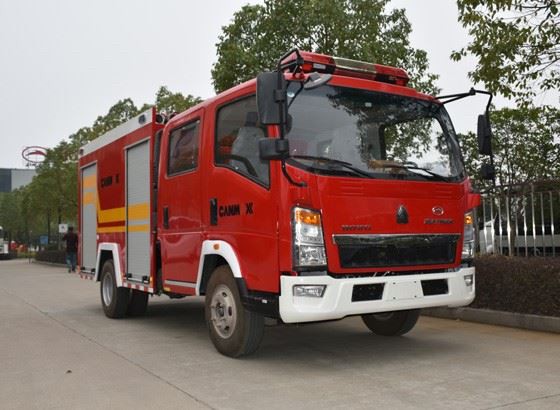Having a trash can with broken or worn-out wheels can be incredibly frustrating. Whether you use it for residential waste, yard debris, or construction needs, the ability to maneuver your trash can easily is essential. This article provides a thorough guide to trash can wheels replacement, including benefits, types of wheels, installation tips, and FAQs.
Why You Might Need to Replace Your Trash Can Wheels
Over time, the wheels on your trash can can wear out or break due to various reasons.
Common Reasons for Wheel Damage
- Weathering: Exposure to the elements can degrade plastic and rubber components.
- Overloading: Excess weight can stress the wheels and axles, leading to breakage.
- Regular Wear and Tear: Everyday usage can naturally wear down the wheels.
- Improper Use: Dragging the can over rough surfaces can cause damage.
Benefits of Replacing Trash Can Wheels
- Improved Maneuverability
- Reduced Physical Strain
- Increased Longevity of Trash Can
- Enhanced Aesthetic Appeal
Types of Trash Can Wheels
Understanding the different types of wheels available can help you choose the best replacement for your needs.
Plastic Wheels
Lightweight and often cost-effective, plastic wheels are commonly found on most residential trash cans. However, they may not hold up well under heavy loads.
Rubber Wheels
Rubber wheels offer better traction and durability, making them ideal for outdoor use, especially in rugged terrains.
Metal Wheels
Metal wheels are highly durable and can handle heavy weights, making them suitable for commercial applications. They are often less common in residential bins.
How to Measure Your Trash Can Wheels
Before purchasing new wheels, it’s important to get the correct measurements.
Tools You Will Need
- Measuring tape
- Wrench (if necessary)
- Pen and paper for recording measurements
Steps to Measure
- Remove the wheel from the trash can.
- Measure the diameter of the wheel from one side to the other.
- Measure the width of the wheel.
- Note the type of axle—in some cases, you may need to measure the axle length.
Where to Buy Replacement Wheels
Once you have the necessary information, you can purchase replacement wheels from various sources.
Online Retailers
- Amazon
- eBay
- Walmart’s Online Store
- Home Depot
Local Hardware Stores
Visit your nearby hardware or home improvement store to inspect wheels in person, ensuring you match the size and type accurately.
Installation Process for Trash Can Wheels
Replacing wheels is often a straightforward process that can be done with basic tools.
Tools Required
- Wrench or socket set
- Replacement wheels
- Lubricant (optional)
Step-by-Step Installation Guide
- Lift the trash can and place it on its side.
- Locate the wheel and the securing mechanism (usually a bolt or screw).
- Use the wrench to remove the old wheel.
- Clean the area where the wheel was mounted.
- Attach the new wheel, ensuring it fits snugly.
- Test the wheel to ensure it spins freely.
Maintenance Tips for Your Trash Can Wheels
Keeping your trash can wheels in good condition extends their life and ensures ease of use.
Regular Cleaning
Regularly clean the wheels to remove dirt and debris that can cause wear.
Check for Damage
Inspect wheels periodically for cracks or signs of wear. Replace any damaged parts as soon as possible.
Lubrication
Apply a suitable lubricant to the axle to ensure smooth rotation of the wheels.
Cost of Trash Can Wheel Replacement
The cost can vary based on the type of wheel and where you purchase it from.
Average Costs
| Type of Wheel | Average Cost |
|---|---|
| Plastic Wheel | $3 – $10 |
| Rubber Wheel | $10 – $25 |
| Metal Wheel | $15 – $40 |
DIY vs. Professional Help
Deciding whether to tackle the replacement yourself or hire a professional can depend on your comfort level with DIY projects.
Pros of DIY
- Cost savings
- Flexibility to work on your schedule
Cons of DIY
- Time-consuming if you’re not familiar with the process
- Potential for incorrect installation
When to Consider Professional Help
If you’re unsure about measurements or installation, or if the trash can is part of a larger, complex waste management system, hiring a pro may be the best option.
FAQs About Trash Can Wheels Replacement
1. How often should I replace my trash can wheels?
It largely depends on usage. A good rule of thumb is to inspect them every few months. If you notice significant wear or damage, it’s time for a replacement.
2. Can I replace just one wheel?
Yes, you can replace just one wheel if the others are still in good condition. However, replacing all wheels can provide a more balanced performance.
3. Are all trash can wheels the same size?
No, trash can wheels come in various sizes. Always measure your existing wheels before purchasing replacements.
4. How do I know if my wheels are compatible with my trash can?
Check the make and model of your trash can. Many manufacturers provide standard sizes and specifications on their websites.
5. What type of wheel is best for a heavy-duty trash can?
Rubber or metal wheels are best for heavy-duty trash cans, as they offer better support and durability.
6. Can I upgrade my trash can wheels?
Yes, you can upgrade to better-quality wheels (like rubber or metal) if you’re currently using plastic wheels, offering improved durability and performance.





